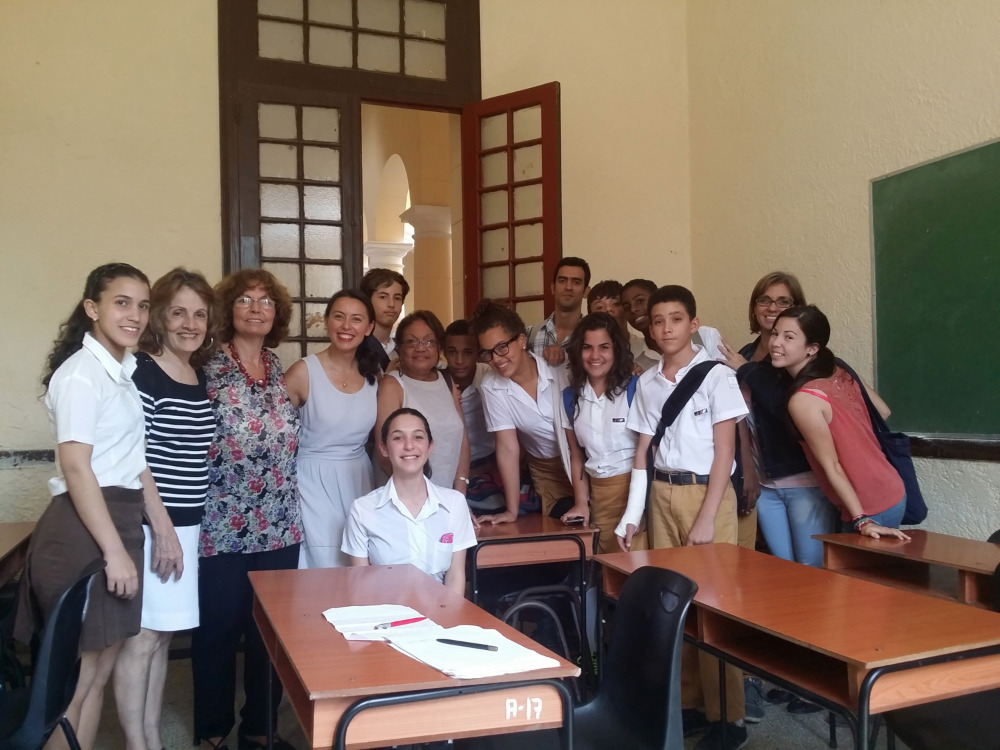
On 12 March 2016, British-based Cuban pianist Eralys Fernández held a classical music benefit concert, with support from our association Cubans in the UK, as part of a fundraising project to donate a piano to a music school in Havana. The concert title was: A piano for Cuba – Fundraising Classical Music Concert. To sell tickets we opened an account with www.eventbrite.co.uk, selling 36 tickets at £10 each. While Eventbrite is a US company this website is based in the UK, so its status is not clear to its customers.
Following the concert, Eventbrite informed us that: ‘We were contacted by our bank to let us know that the pay-out we initiated on 17 March 2016 for £360 has been temporarily held’. They wanted to know of ‘any direct or indirect benefit to Cuba or a Cuban in this transaction’. This is blatant discrimination against Cuban people living in Britain, to be denied access to services or products based on our ethnicity or national origin. A month later, Eventbrite confirmed that the ticket money was withheld ‘pursuant to US Department of Treasury, Office of Foreign Asset Controls (OFAC) regulations and sanctions program’ – in other words the US blockade. ‘In order to have the funds released’, advised Eventbrite, ‘you will need to obtain a license from the US Treasury Department’. Why should we, as British citizens of Cuban origin, apply for a licence from a US institution? There are no sanctions against Cuba in Britain.
In fact, we have been advised by US Attorney General of Iowa, Tom Miller, that:
‘Under current US Government regulations any humanitarian projects with respect to Cuba do not require a specific license from the US Office of Foreign Assets Control of the United States Treasury. Pianos can be donated to Cuba under a “General License”, which does not require permission. Furthermore, US laws do not apply to Britain, so there would be absolutely no prohibition for an organization in the UK or Europe donating pianos to Cuba.’
British and European law regulate against the extra-territorial application of the US blockade. In 1996, the European Council adopted Regulation (EC) No. 2271/96 on ‘protecting against the effects of the extra-territorial application of legislation adopted by a third country, and actions based thereon or resulting therefrom.’ Also in 1996, the British Parliament approved Order No. 3171 relating to the Protection of Trading Interests Act on ‘The Extraterritorial US Legislation’, which enables the British government to penalise any ‘natural or legal person’ complying with extraterritorial aspects of US blockade on British territory.
In late 2015, Lord Hutton requested information from the British Treasury about the advice ‘given to UK banks regarding business and personal financial transactions between UK individuals or UK-registered companies and Cuban counterparties based in Cuba.’ Their reply in December 2015 stated that: ‘There are no UK, EU or UN sanctions regimes restricting transactions between the UK and Cuba. The US has economic sanctions against Cuba. EU legislation (Council Regulation [EC] No 2271/96) provides protection against and counteracts the effects of the extra-territorial application of US Cuba sanctions within the EU.’
On 15 March 2016, just prior to President Obama’s visit to Cuba, OFAC announced amendments to controls on financial transactions, including permitting US banks to process Cuba related US dollar denominated transactions where neither the sender not the beneficiary of the transactions are subject to US jurisdiction.
In a similar case to our own, on 20 April 2016, a district court in Dortmund, Germany, issued an order against US online payment system PayPal for applying US laws in the country. During his official visit to Cuba in late April, British Foreign Minister Philip Hammond confirmed the British government’s official opposition to the United States blockade. It is time Britain took a legal and political stand against the extra-territorial application of the US blockade, which effects any British citizen or resident attempting to relate to Cuba via any US-linked entity, no-matter where it is based. We know that the Cuba Solidarity Campaign recently has its Cooperative Bank account closed and Rock around the Blockade had its Paypal account shut down, both under OFAC regulations.
Eventbrite has now refused even to return the ticket money to the purchasers. In other words, that money has been stolen. We will continue to campaign on this issue until it is resolved.
Please support our project to send a piano to Cuba: https://www.gofundme.com/pianotocuba. For events and more information see: https://www.facebook.com/piano2cuba/?fref=ts
Daniesky Acosta,
Director, Cubans in the UK




